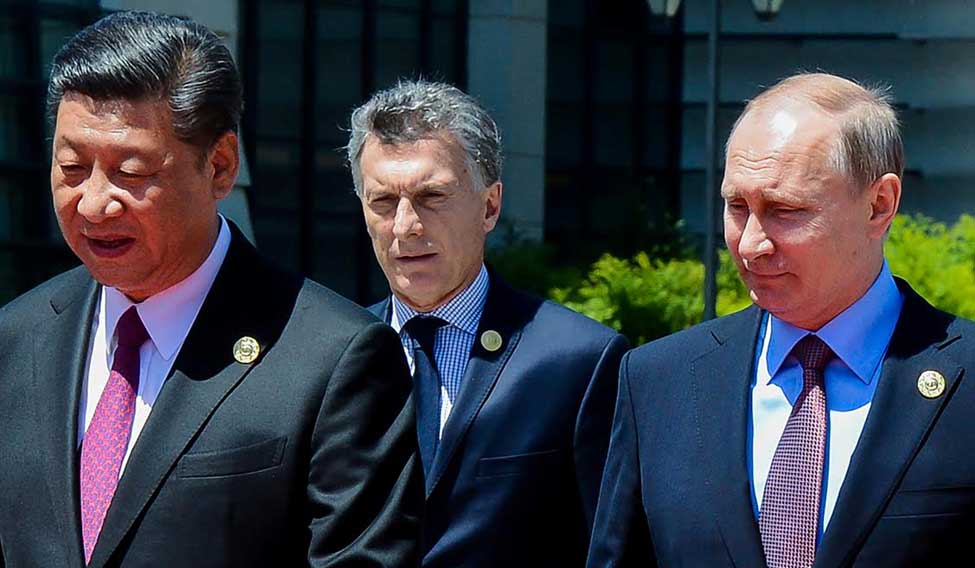Attended by leaders of 29 countries, China's mega Belt and Road forum ended on Monday with President Xi Jinping announcing the next summit for 2019 and hailing the project as the "road to peace."
While Russian President Vladimir Putin, Pakistani and Sri Lankan Prime Ministers Nawaz Sharif and Ranil Wickremesinghe were present at the two-day summit, close neighbour India's absence in the meet was conspicuous.
India skipped the forum in opposition to the multi-million dollar China-Pakistan Economic Corridor (CPEC) that passes through Pakistan-administered Kashmir, which India claims.
Citing its objection to CPEC, India on Saturday said "it cannot accept a project that ignores its core concerns on sovereignty and territorial integrity".
However, China's Foreign Ministry on Monday again sought to allay New Delhi's fear, saying the CPEC was not aimed at India and the project will not affect Beijing's position on the Kashmir dispute.
Reacting to India's absence at the forum, it said the "CPEC was an initiative on economic cooperation".
"It is not directed at any third parties, not relevant to disputes over territorial sovereignty and does not affect China's position on the Kashmir issue," a statement by the ministry said.
"Regarding the issue of Kashmir which the Indian side is concerned about, we have been stressing that the issue was left over from history between India and Pakistan, and should be properly addressed by the two sides through consultation and negotiation."
Addressing the media on the second and final day of the event, Xi urged the countries to shun protectionism and enhance dialogue to "settle disputes and resolve differences in maintaining regional stability."
"The Belt and Road Initiative is not set by ideology. We won't set a political agenda. It's not exclusive," he said, allaying fears of many countries that see the project more of a geopolitical design.
Countries like India and the US are sceptical of the project and view it as a geostrategic design. However, China maintains the project is only for reaping economic benefits.
India is dead against the CPEC, a vital part of the One Belt One Road initiative.
The CPEC connects China's Xinjiang region with Pakistan's Gwadar port in restive Balochistan.
India fears after gaining access to the Arabian Sea through Gwadar, China will find it easy to sail into the Indian Ocean.
India is heavily dependent on its energy imports through sea route.
Earlier in the press conference, Xi said that 68 countries have signed the agreement of cooperation.
A communique at the end of the summit said: "We reaffirm our shared commitment to build open economy, ensure free and inclusive trade, oppose all forms of protectionism including in the framework of the Belt and Road Initiative."
"We endeavor to promote a universal, rules-based, open, non-discriminatory and equitable multilateral trading system with WTO at its core," according to the communique.
Announced by Xi in 2013, the Belt and Road project aims to connect Asia, Europe and Africa through a network of roads, railway lines, and ports.
The Bangladesh, China, India, Myanmar (BCIM) is one of the planned corridors of this project.
Beijing had been keen on New Delhi joining the connectivity event.
India's skipping the event, touted by Chinese media as one of the most important international events, could add to the already strained ties between the two nations.




